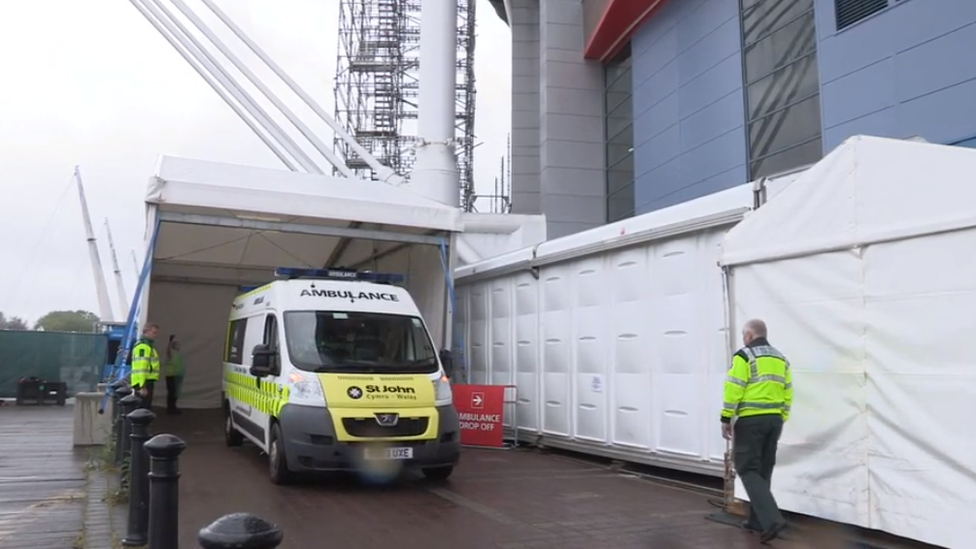Coronavirus: Woman, 94, 'feels fine' after recovery
- Published
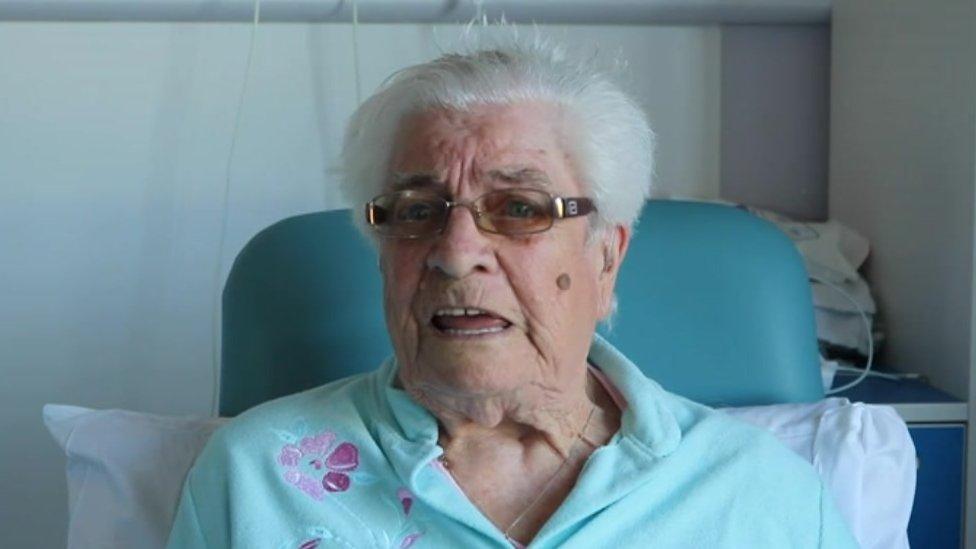
Eluned Mathias says she feels wonderful and cannot wait to get home
A 94-year-old woman who spent weeks in hospital with Covid-19 says she feels "wonderful" and cannot wait to get home.
Eluned Mathias, from Y Fron in Gwynedd, suffered "terrible pains" in her joints and was taken to Ysbyty Gwynedd.
Because she already suffered rheumatic problems, she "never thought" to connect her symptoms with coronavirus.
She was transferred to a community hospital set up to deal with the impact of the pandemic.
"Of course, I never dreamed I had that, because I was never going out, nobody was coming in. It was quite a shock really," she said.
Her gradual recovery meant she was able to be transferred from Bangor to Ysbty Bryn Beryl in Pwllheli - one of three community hospitals transformed into "red sites" in north west Wales.
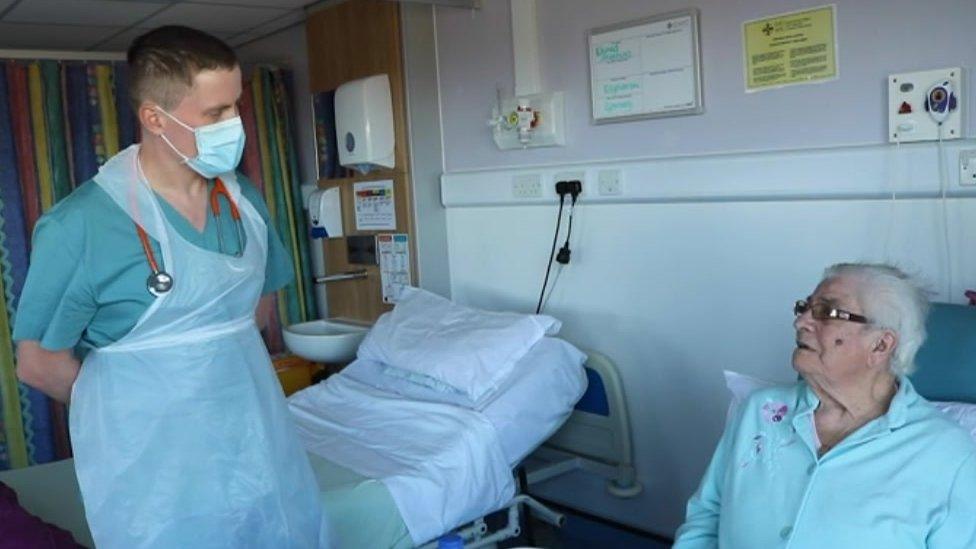
Eluned Mathias says she trusted the doctors and stayed positive
They are designed to accommodate patients who no longer require care in the most acute settings, easing pressure on the main hospitals and placing patients closer to their own communities.
She said: "I feel much, much better - wonderful really. And I can sleep, because in Bangor I was hallucinating.
"I can't remember very much about the Monday I went in, I was so bad. You've got to trust the doctors, they know what they're doing. Do what they say and keep going - be positive.
"I can't thank them enough for their kindness, and they've been there 24/7, 100%... and I'm very, very thankful for it."
"I'm feeling fine. I'm ready to go home really, except I'm a bit wobbly on my feet."
In response to the outbreak, Betsi Cadwaladr University Health Board transformed community hospitals in Pwllheli, Dolgellau and Tywyn, closing the minor injury units to increase the available number of beds in Gwynedd and Anglesey.
Units at other hospitals have been used to deal with other unrelated conditions.
'A calmer environment'
Eilir Hughes, clinical lead at Ysbyty Bryn Beryl, said people on the coronavirus ward were mainly "step-down patients" transferred from district general hospitals for ongoing rehabilitation.
"Every single one of them has had a positive covid test and some of them are actually nearing the end of life as well, so there is palliation, external going on here as well. It's a quieter unit, so it's more conducive for palliation than some of the busier wards."
He said one of the advantages of caring for suitable patients in community hospitals, was that "it's a calmer environment".
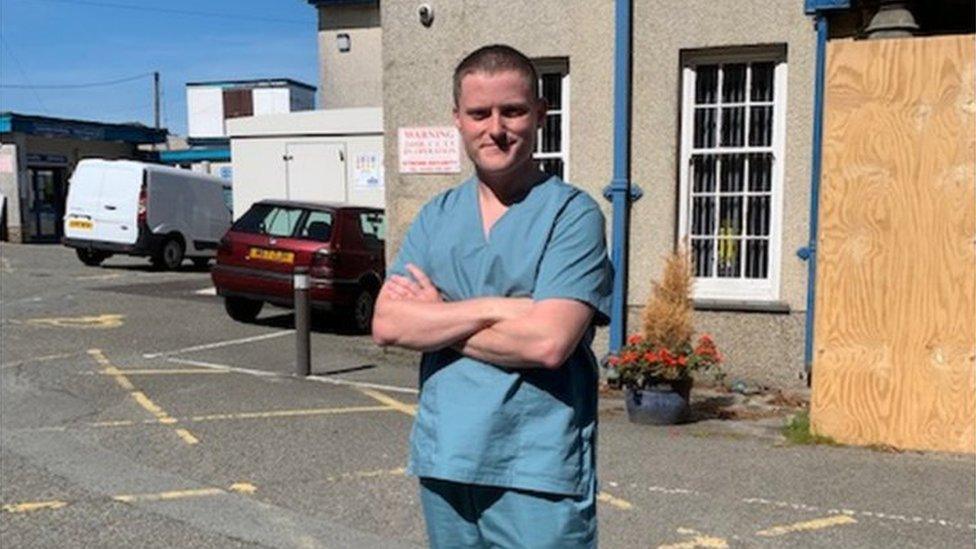
Eilir Hughes says community hospitals provide a calmer environment for patients
"The nurses often know the patients or their families so there's that link to them.
"Because patients can't see their own families, at least it feels a bit more familiar to them, and they know that they're closer to home, and that's really important to these patients."
Ysbyty Bryn Beryl also contains a purpose-built assessment centre for people suspected of potentially having the coronavirus.
Assessments are strictly by referral and appointment, and are conducted without patients having to enter the main building.
Louise Davies, an assistant director of nursing services, said some of the changes to community hospitals "have been massive".
"Any space available has been emptied. It's been cleaned. Some areas had to be re-decorated.
"We have had to segregate places so that we ensure our patients remain safe.
"We've had to provide showering and changing areas separate for nursing staff and our colleagues."
- Published20 May 2020
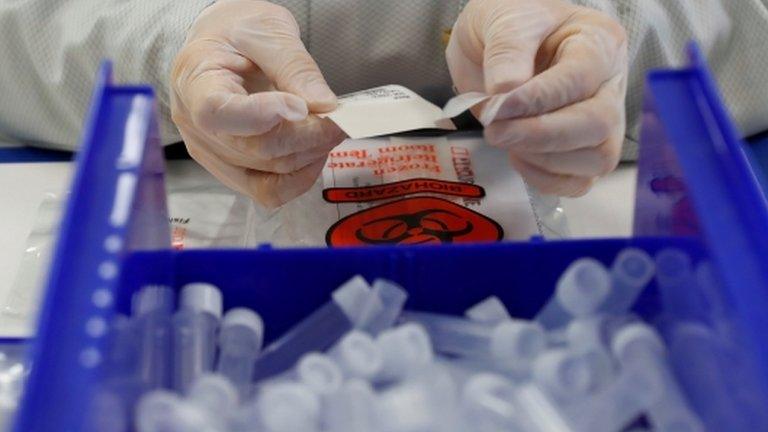
- Published21 May 2020

- Published29 April 2020
